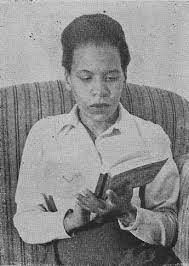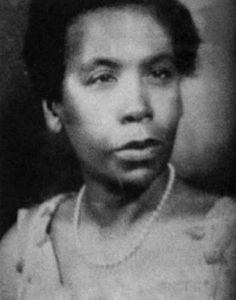
Virginia Brindis
Bio
De
Montevideo, Uruguay
Uruguayan
Quem
Poet and Political Activist
Nasceu em
Montevideo, Uruguay - 1908
Morreu em
Montevideo, Uruguay - 1958
Biografia
Virginia Brindis de Salas was born on September 18, 1908 in the capital of Uruguay, Montevideo. She was the first black author published in Uruguay.
An active participant in the intellectual and cultural life of the time despite a limited formal education, Virginia Brindis was part of the black movement that emerged across Latin America at the beginning of the 20th century. She was a political activist and participant in the Partido Autóctono Negro (PAN) in addition to contributing to the magazine Nuestra Raza, with political and social themes relevant to Afro-Uruguayans.
She published "Pregón de Marimorena" (1946) and "Cien cárceles de amor" (1949). Pregon de Marimorena is a collection of songs and pregones (the street vendors' call poetically transformed). telling the story of Marimorena, a black woman trying to survive from her work. In Cien Carceles de Amor, the theme of the life of black women in Uruguay continues to emphasize the social and economic incarceration imposed on them.
Her work is invisible and full of controversies because she is a black woman. This highlights the influence of the whitening of the Uruguayan population (which until today) makes the Afro-Uruguayan and native populations invisible.
For a time, she worked as a maid in the house of a white Uruguayan poet, who was one of those responsible for making Virginia feel insecure about her ability to be a writer. Furthermore, Alberto Britos Serrat accused her of plagiarism, which was rejected by researchers committed to studying her work, such as Richard L. Jackson, Marwin A. Lewis and Caroll Mills Young, who found that the poems are, in fact, from authored by Brindis de Salas.
At 50 years of age, Virginia Brindis de Salas passed away on April 6, 1958 in Montevideo.
Fontes
¿Quién fue Virginia Brindis de Sala? La primer poeta afrouruguaya en editar un libro. In: ACSUN (Asociación Cultural y Social Uruguay Negro). Available at: https://acsunuruguaynegro.blogspot.com/2022/07/quien-fue-virginia-brindis-de-sala.html . Accessed in November 2023.
Virginia Brindis de Salas, por Anelise Freitas, Ma Njanu e Marcela Batista. In: Portal Escamandro. Available at: https://escamandro.wordpress.com/2020/05/26/virginia-brindis-de-salas-por-anelise-freitas-ma-njanu-e-marcela-batista/. Accessed in November 2023.
Virginia Brindis de Salas: mujer afro, poeta invisibilizada. In Harta. Available at: https://www.harta.uy/virginia-brindis-de-salas/ Accessed in: November 2023.
Virginia Brindis. In @thisnegroespeaksofrivers. Available at: https://www.tumblr.com/thisnegroespeaksofrivers/170603766925/virginia-brindis-de-salas-was-an-afro-uruguayan Accessed in: November 2023.
Video - Virginia Brindis de Salas. In: Youtube Channel blackfacts. Available at: https://www.youtube.com/watch?v=EOT5qz9H2dY. Accessed in: November 2023.
Video - Virginia Brindis de Salas. In: Youtube Channel Hermosa Intervención. Available at: https://www.youtube.com/shorts/umZLoFV198Y. Accessed in: November 2023.



